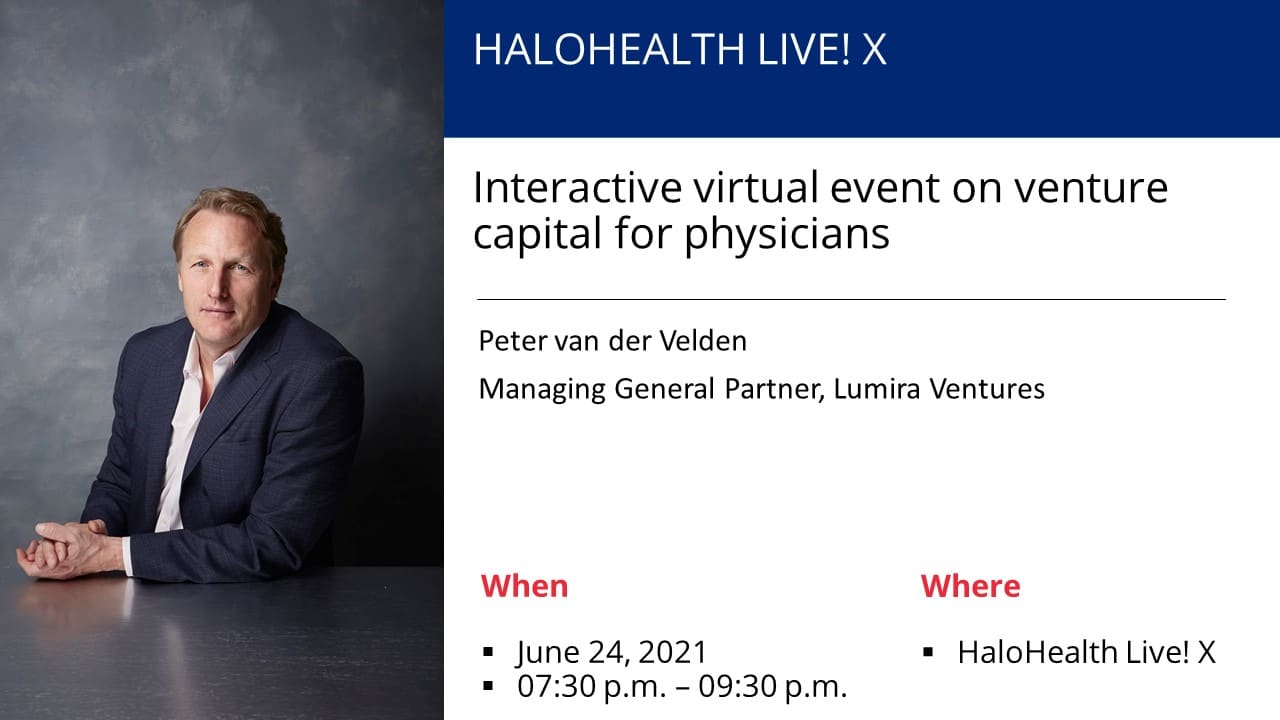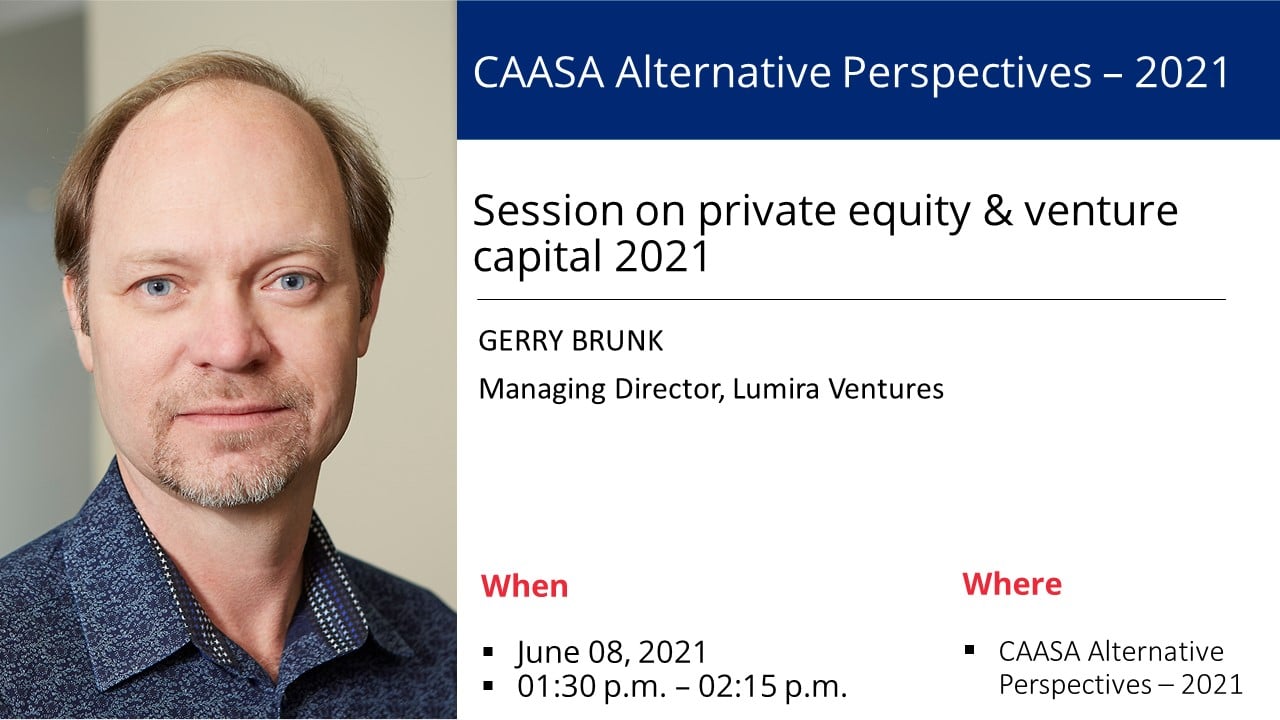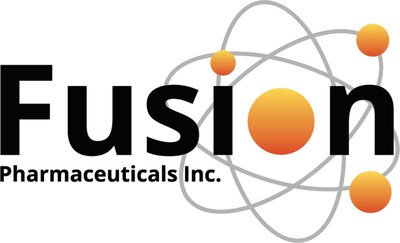Oversubscribed Lumira Ventures IV to continue successful focus backing biotechnology and medtech companies in Canada and U.S.
Companion strategic fund formed in partnership with international pharmaceutical company
During the past 18 months Lumira Ventures completed 8 exit transactions and portfolio companies received 2 FDA new product approvals and raised over US$800M via IPOs and public and private financings
TORONTO, MONTREAL, VANCOUVER and BOSTON, July 26, 2021 — Lumira Ventures today announced a significant expansion of its capital base to support the founding and building of innovative healthcare companies in Canada and the U.S. The closing of the oversubscribed Lumira Ventures IV at US$220 million represents the largest fund Lumira has raised to date, and the largest institutional life sciences venture capital fund ever raised in Canada. In parallel, Lumira closed a strategic venture fund in partnership with an international pharmaceutical company. Collectively, the new funds represent over US$255 million (Canadian $321 million) of committed capital.
“This has been a truly transformative time for Lumira Ventures and the life sciences sector in Canada and around the world,” said Peter van der Velden, co-founder and Managing General Partner of Lumira Ventures. “While Lumira Ventures IV is more than 55% larger than our prior fund, its mission and strategy remain the same – investing in companies at the forefront of biomedical innovation whose products have the potential to transform patient outcomes, improve healthcare access and reduce the cost of healthcare delivery. We invest in and help build companies led by mission-driven healthcare entrepreneurs that are often located in underserved regions of the North American life sciences ecosystem.”
“With strong, and often increased levels of support from all of our prior fund’s institutional investors, and significant commitments from a broad range of new investors, we have been able to seamlessly continue executing our proven investment approach,” van der Velden added. “We deeply appreciate the continued support of our long-time partners, and are excited to welcome a new group of financial and strategic investors to the Lumira community.”
Genevieve Guertin M.Sc., CFA, Vice President Investments – Life Sciences, Fonds de solidarité FTQ commented, “We have been backing Lumira since 2007. We are grateful for this collaboration with a group that shares our passion for strengthening Québec and Canada’s life science sector, as well as our commitment to bringing new innovative solutions to patients. In addition to being a significant investor in Lumira’s four main funds, we have frequently co-invested with the firm and can speak to the skill and depth of this excellent team.”
“Investor interest in our new fund meaningfully exceeded our expectations, a testament to the value of the platform our team has been building since 2005,” said Gerry Brunk, co-founder and Managing Director of Lumira Ventures. “The past 18 months have brought an unprecedented set of challenges worldwide. We’ve been encouraged during this time to see the growing recognition of the value of investing in biomedical innovation. We also recognize the remarkable perseverance and accomplishments of the founders and entrepreneurs in our portfolio, and across our sector. Looking ahead, the depth and quality of our pipeline of new investment opportunities, on both sides of the border, has never been stronger in the two decades our team has been investing together, and we’ve already closed four investments from our new fund. ”
Lumira Ventures IV has the most diverse and balanced investor base in the firm’s history, with strong participation from family offices, foundations, funds-of-funds, pension plans, sovereign government funds and strategic corporate investors. Investors in the fund include: Kensington Capital Partners, Fonds de Solidarité FTQ, Northleaf Capital Partners, Caisse de dépôt et placement du Québec, the Business Development Bank of Canada, Teralys Capital, the Ontario Capital Growth Corporation, Royal Bank of Canada, Investissement Québec, Fondaction, Alexandria Venture Investments, Angelini Pharma, China Grand Pharmaceutical and Healthcare Holdings, Vancity, and Amana Global Partners.
Rick Nathan, Senior Managing Director at Kensington Capital, said, “We are proud to be the lead commitment to Lumira Ventures IV as we renew our longstanding and successful relationship. The Lumira team has clearly emerged as Canada’s venture capital leader in life sciences.” Jérôme Nycz, Executive Vice President, BDC Capital, added, “BDC Capital is proud to continue to support a high-performing manager such as Lumira for the third consecutive fund. The firm is expertly addressing the funding needs of Canada’s world-renowned life sciences sector, and we are pleased to see that Lumira Ventures IV has attracted strategic and financial investors new to venture investing in Canada.”
Since the beginning of 2020 Lumira Ventures has achieved eight realizations and its portfolio companies have received two landmark FDA product approvals and collectively completed over US$800 million in new financings and IPOs. Lumira currently manages a portfolio of over 30 private and public companies.
About Lumira Ventures
Lumira Ventures is a North American healthcare venture capital firm with a two-decade track record investing in transformative biomedical companies. We are a multi-stage investor that partners with mission-driven entrepreneurs and like-minded investors to build innovative companies in the biotechnology, medical device and digital health sectors. These companies are harnessing rapidly evolving innovations in genomics, cell therapy, gene therapy, bioengineering, robotics and artificial intelligence to develop high impact, often transformative products for patients while generating exceptional returns for our investors and meaningful economic value to society. To date, our companies have brought dozens of biomedical innovations to the market, impacting the lives of over 1 billion patients worldwide and generating over $70 billion of cumulative revenue. Lumira Ventures manages its activities from offices in Toronto, Montréal, Vancouver and Boston.
Legal Notices
Lumira Ventures provides investment advisory services solely to privately offered investment funds. Lumira Ventures neither solicits nor makes its services available to the public and none of the investment funds are currently open to new investors. The contents of this press release are not an offer to sell nor a solicitation of an offer to purchase interests of Lumira Ventures or any current or future related investment fund, nor do they constitute a financial promotion, investment advice or an inducement or incitement to participate in any product, offering or investment.
Contacts
In Canada: Peter van der Velden, Managing General Partner │ 416.213.4189
In the United States: Gerry Brunk, Managing Director │ 781.530.3868
Lumira Ventures conclut un nouveau financement de 255 millions de dollars américains pour créer des entreprises transformatrices du secteur de la santé
La sursouscription de Lumira Ventures IV contribuera à soutenir avec succès les entreprises de biotechnologie et de technologies médicales au Canada et aux États-Unis.
Un fonds stratégique complémentaire est créé en partenariat avec une entreprise pharmaceutique internationale.
Au cours des 18 derniers mois, Lumira Ventures a effectué huit transactions de sortie : les entreprises de notre portefeuille ont reçu deux approbations de nouveaux produits de la FDA et recueilli plus de 800 millions de dollars américains par le biais de PAPE et de financements publics et privés
TORONTO, MONTRÉAL, VANCOUVER, et BOSTON, le 26 juill. 2021 /CNW/ – Lumira Ventures a annoncé aujourd’hui une importante expansion de sa base de capital pour soutenir la création et le développement d’entreprises innovatrices du secteur de la santé au Canada et aux États-Unis. La clôture de Lumira Ventures IV sursouscrite à 220 millions de dollars américains représente le plus grand fonds que Lumira a levé à ce jour, et le fonds institutionnel le plus important de capital de risque en sciences de la vie jamais levé au Canada auparavant. Parallèlement, Lumira a conclu un fonds de capital-risque stratégique en partenariat avec une entreprise pharmaceutique internationale. Collectivement, les nouveaux fonds représentent plus de 255 millions de dollars américains (321 millions de dollars canadiens) de capital engagé.
« La période actuelle a été une véritable phase de transformation pour Lumira Ventures et le secteur des sciences de la vie au Canada et dans le monde entier, a déclaré Peter van der Velden, cofondateur et associé directeur principal de Lumira Ventures. Même si Lumira Ventures IV est plus de 55 % plus important que notre fonds précédent, sa mission et sa stratégie demeurent les mêmes : investir dans des entreprises à l’avant-garde de l’innovation biomédicale dont les produits ont le potentiel d’avoir un impact important sur la santé des patients, d’améliorer l’accès aux soins de santé et de réduire le coût de la prestation des soins dans le secteur. Nous investissons dans des entreprises dirigées par des entrepreneurs en soins de santé motivés par leur mission et souvent situés dans des régions mal desservies de l’écosystème des sciences de la vie en Amérique du Nord.
Grâce à un degré de soutien solide et souvent accru de la part de tous les investisseurs institutionnels de notre fonds précédent et à des engagements importants de la part d’un large éventail de nouveaux investisseurs, nous avons été en mesure de poursuivre sans interruption notre approche d’investissement éprouvée, a ajouté M. van der Velden. Nous sommes profondément reconnaissants du soutien continu de nos partenaires de longue date et nous sommes ravis d’accueillir un nouveau groupe d’investisseurs financiers et stratégiques dans la communauté de Lumira. »
Geneviève Guertin, M.Sc., CFA, vice-présidente aux investissements – Sciences de la vie, Fonds de solidarité FTQ, a commenté : « Nous soutenons Lumira depuis 2007. Nous sommes reconnaissants de cette collaboration avec un groupe qui partage notre passion pour le renforcement du secteur des sciences de la vie au Québec et au Canada, ainsi que notre engagement à apporter de nouvelles solutions innovantes aux patients. En plus d’être un investisseur important dans les quatre principaux fonds de Lumira, nous avons fréquemment co-investi avec l’entreprise et nous pouvons témoigner de la compétence et de la profondeur de cette excellente équipe. »
« L’intérêt des investisseurs pour notre nouveau fonds a largement dépassé nos attentes, ce qui témoigne de la valeur la plateforme que notre équipe construit depuis 2005 », a déclaré Gerry Brunk, cofondateur et associé directeur de Lumira Ventures. « Les 18 derniers mois ont entraîné un ensemble de défis sans précédent à l’échelle mondiale. Pendant cette période, nous avons été encouragés par la reconnaissance croissante de la valeur de l’investissement dans l’innovation biomédicale. Nous reconnaissons également la persévérance et les réalisations remarquables des fondateurs et des entrepreneurs de notre portefeuille et de l’ensemble de notre secteur. Pour l’avenir, la profondeur et la qualité de notre pipeline de nouvelles possibilités d’investissement des deux côtés de la frontière n’ont jamais été aussi fortes depuis les deux décennies au cours desquelles notre équipe a investi ensemble, et nous avons déjà conclu quatre investissements de notre nouveau fonds. »
Lumira Ventures IV dispose de la base d’investisseurs la plus diversifiée et la plus équilibrée de l’histoire de l’entreprise, avec une forte participation des bureaux de gestion de patrimoine, des fondations, des fonds de fonds, des régimes de retraite, des fonds gouvernementaux souverains et des investisseurs stratégiques d’entreprises. Parmi les investisseurs du fonds figurent : Kensington Capital Partners, Fonds de solidarité FTQ, Northleaf Capital Partners, la Caisse de dépôt et placement du Québec, la Banque de développement du Canada, Teralys Capital, la Société ontarienne de financement de la croissance (SOFC), la Banque Royale du Canada (RBC), Investissement Québec, Fondaction, Alexandria Venture Investments, Angelini Pharma, China Grand Pharmaceutical and Healthcare Holdings, Vancity et Amana Global Partners.
Rick Nathan, directeur général principal de Kensington Capital, a déclaré : « Nous sommes fiers d’être le principal investisseur de Lumira Ventures IV, alors que nous renouvelons notre relation fructueuse de longue date. L’équipe de Lumira s’est clairement imposée comme le chef de file canadien du capital-risque dans le domaine des sciences de la vie. » Jérôme Nycz, vice-président exécutif de BDC Capital, a ajouté : « BDC Capital est fier de continuer de soutenir un gestionnaire à haut rendement comme Lumira pour le troisième fonds consécutif. L’entreprise répond de façon experte aux besoins de financement du secteur canadien des sciences de la vie de renommée mondiale, et nous sommes heureux de constater que Lumira Ventures IV a attiré de nouveaux investisseurs stratégiques et financiers en matière de capital de risque au Canada. »
Depuis le début de 2020, Lumira Ventures a réalisé huit transactions de sortie; les entreprises de son portefeuille ont reçu deux approbations de produits de premier plan de la FDA et ont collectivement réalisé plus de 800 millions de dollars américains en nouveaux financements et en PAPE. Lumira gère actuellement un portefeuille de plus de 30 sociétés fermées et ouvertes.
À propos de Lumira Ventures
Lumira Ventures est une entreprise nord-américaine de capital-risque spécialisée dans le secteur des soins de santé qui investit depuis deux décennies dans des entreprises biomédicales transformatrices. Nous investissons aux différentes étapes du développement d’entreprises et nous nous associons à des entrepreneurs motivés par leur mission et à des investisseurs partageant les mêmes idées pour créer des entreprises innovantes dans les secteurs de la biotechnologie, des dispositifs médicaux et de la santé numérique. Ces entreprises exploitent les innovations en évolution rapide dans les domaines de la génomique, de la thérapie cellulaire, de la thérapie génique, de la bio-ingénierie, de la robotique et de l’intelligence artificielle afin de développer des produits à fort impact pour les patients, tout en générant des rendements exceptionnels pour nos investisseurs et une valeur économique significative pour la société. À ce jour, nos entreprises ont mis sur le marché des douzaines d’innovations biomédicales qui ont eu un impact sur la vie de plus d’un milliard de patients dans le monde et qui ont généré des revenus cumulatifs de plus de 70 milliards de dollars. Lumira Ventures gère ses activités depuis ses bureaux à Toronto, Montréal, Vancouver et Boston.
Avis juridiques
Lumira Ventures fournit des services de conseil en investissement offerts uniquement à des fonds d’investissement privés. Lumira Ventures ne fait aucune sollicitation ni ne met ses services à la disposition du public; aucun des fonds d’investissement n’est actuellement ouvert aux nouveaux investisseurs. Le contenu du présent communiqué de presse ne constitue ni une offre de vente ni une sollicitation d’une offre d’achat de parts de Lumira Ventures ou de tout autre fonds d’investissement actuel ou futur, ni une promotion financière, ni des conseils en matière d’investissement ou une incitation à participer à un produit donné, à une offre ou à un investissement. Au Canada : Peter van der Velden, associé directeur │ 416 213-4189; Aux États-Unis : Gerry Brunk, directeur général 781 530-3868
Related media stories
The Globe and Mail: Lumira Ventures raises largest Canadian life sciences fund in more than 20 years
The Logic: Lumira Ventures raises US$255M across two healthtech funds
BioCentury: Seeking deals from all areas of U.S. and Canada, Lumira raises $220M fourth fund
Endpoints News: What will Lumira Ventures do with $220M? Stay out of the comfort zone and off the beaten biotech path
Betakit: Lumira Ventures closes $276 million CAD for fourth fund
Firstword Pharma: Lumira Ventures Closes on US$255 Million of New Capital to Build Transformative Healthcare Companies
Finsmes: Lumira Ventures Closes Two Funds Totalling US$255M
Starup Savant: Lumira Ventures Closes a $255 Million Fund for Healthcare Startup Companies
Startup Around: Lumira Ventures closes $276 million CAD for fourth fund
















